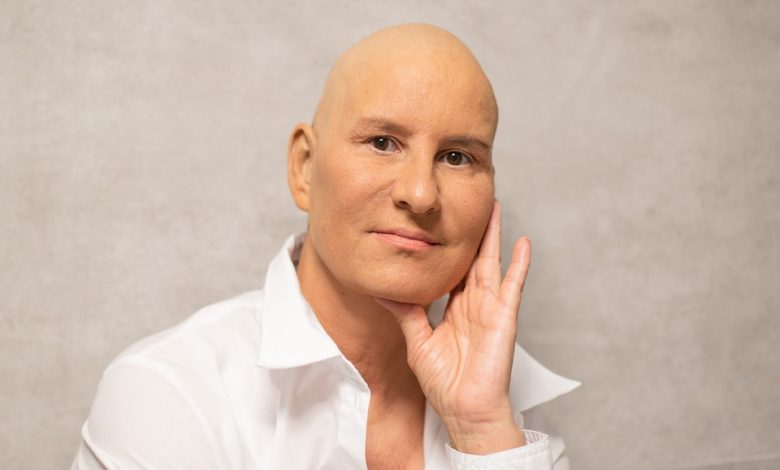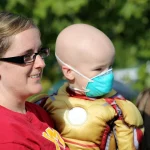How Does Chemotherapy Work? (4 Pathways)

Chemotherapy is a medical treatment that uses powerful drugs to kill or slow down the growth of cancer cells. It is one of the primary treatment options for cancer and can be used in various stages of the disease. Chemotherapy drugs can be administered in different ways, including intravenously (directly into a vein), orally (in pill or liquid form), topically (applied to the skin), or through injections into muscles or body cavities.
The drugs used in chemotherapy are designed to target and destroy rapidly dividing cells, which is a characteristic of cancer cells. Chemotherapy can be used as the primary treatment to eliminate cancer cells, or it may be used in combination with other treatments like surgery or radiation therapy. The specific treatment plan is determined by various factors, including the type and stage of cancer, the overall health of the patient, and treatment goals.
How Does Chemotherapy Work?
Chemotherapy works by targeting and killing rapidly dividing cells, which includes cancer cells. The specific mechanisms of action can vary depending on the type of chemotherapy drug used, but here are some common ways in which chemotherapy works:
1. Cell Cycle Interference: Chemotherapy drugs are designed to target cells that divide rapidly, including cancer cells. The cell cycle consists of different phases: G1 (gap 1), S (DNA synthesis), G2 (gap 2), and M (mitosis). Chemotherapy drugs can interfere with various phases of the cell cycle, preventing cancer cells from dividing and multiplying.
• Cell cycle-specific drugs: Some chemotherapy drugs are more effective during specific phases of the cell cycle. For example, drugs like methotrexate and cytarabine primarily act during the S phase, where they inhibit the synthesis of DNA, preventing cancer cells from replicating.
• Cell cycle-nonspecific drugs: Other chemotherapy drugs can target cells in multiple phases of the cell cycle. These drugs, such as doxorubicin and cisplatin, work by damaging the DNA in cancer cells, leading to cell death or preventing cell division.
2. DNA/RNA Damage: Chemotherapy drugs can directly damage the DNA or RNA of cancer cells, disrupting their ability to function and replicate.
• DNA-binding agents: Some drugs, like alkylating agents (e.g., cyclophosphamide) and platinum-based drugs (e.g., cisplatin), bind to DNA strands and form crosslinks or add chemical groups to the DNA structure. These modifications interfere with DNA replication and transcription, ultimately leading to cancer cell death.
• Topoisomerase inhibitors: Topoisomerase enzymes are involved in DNA replication and repair. Chemotherapy drugs like etoposide and irinotecan inhibit these enzymes, causing DNA strands to break and preventing proper DNA replication. This disruption results in cell death.
3. Inhibition of Cell Division: Chemotherapy drugs can interfere with the process of cell division, known as mitosis, by targeting components required for proper cell division.
• Microtubule inhibitors: Microtubules are essential for cell division, as they form the spindle fibers that help separate chromosomes during mitosis. Drugs like paclitaxel and vincristine disrupt microtubule formation, preventing proper chromosome separation and cell division.
4. Targeted Molecular Pathways: In addition to traditional chemotherapy drugs, targeted therapies have emerged that focus on specific molecules or pathways crucial for cancer cell survival and growth.
• Tyrosine kinase inhibitors (TKIs): TKIs, such as imatinib and erlotinib, block specific proteins called tyrosine kinases that are involved in cancer cell signaling pathways. By inhibiting these proteins, they disrupt the signals that promote cancer cell growth and survival.
• Hormonal therapies: Certain cancers, like breast and prostate cancer, are influenced by hormones. Hormonal therapies, such as tamoxifen and leuprolide, work by blocking hormone receptors or reducing hormone production, thus inhibiting cancer cell growth.
• Monoclonal antibodies: Monoclonal antibodies like trastuzumab and rituximab can recognize specific proteins on the surface of cancer cells. They can directly target and bind to these proteins, interfering with signaling pathways, promoting immune responses against cancer cells, or delivering cytotoxic substances directly to the cancer cells.
Factors That Can Affect How Chemotherapy Works
Several factors can influence how chemotherapy works and its effectiveness. Understanding these factors is crucial in determining the appropriate treatment plan and optimizing outcomes. Here are some key factors:
1. Cancer Type and Stage: Different types of cancer respond differently to chemotherapy. Some cancers are more sensitive to chemotherapy drugs, while others may be more resistant. The specific characteristics of the cancer, such as its location, genetic makeup, and growth rate, can affect how well chemotherapy works.
The stage of cancer also plays a role. Early-stage cancers that are localized and have not spread may respond better to chemotherapy, while advanced or metastatic cancers may be more challenging to treat effectively.
2. Drug Selection and Combination: There are numerous chemotherapy drugs available, each with its own mechanism of action and effectiveness against specific types of cancer. The selection of chemotherapy drugs and whether they are used as single agents or in combination can significantly impact treatment outcomes.
Combination chemotherapy, which involves using two or more drugs with different mechanisms of action, is often employed to maximize effectiveness and reduce the risk of drug resistance. The choice of drugs and their dosages in combination regimens is carefully determined based on the cancer type, stage, and treatment goals.
3. Timing and Treatment Schedule: The timing and schedule of chemotherapy administration can influence its effectiveness. Chemotherapy is often given in cycles, with specific drug doses followed by a recovery period to allow the body to recuperate. The timing between cycles can be critical to optimize the drug’s effect on cancer cells while minimizing damage to healthy cells.
In some cases, chemotherapy may be given before other treatments like surgery or radiation therapy (neoadjuvant therapy) to shrink tumors or after these treatments (adjuvant therapy) to kill any remaining cancer cells. The timing and sequence of treatments can impact their overall effectiveness.
4. Individual Patient Factors: Several patient-related factors can influence how chemotherapy works and its impact on the body:
• Overall Health: A patient’s overall health, including organ function, can affect how well they tolerate chemotherapy and respond to treatment. Adequate organ function, particularly in the liver and kidneys, is necessary for processing and eliminating chemotherapy drugs from the body.
• Age: Age can impact treatment outcomes, as older patients may have different tolerances and may be more prone to certain side effects. However, age alone should not preclude chemotherapy treatment, as each case is evaluated individually.
• Genetic Factors: Genetic variations can affect how an individual’s body metabolizes and responds to chemotherapy drugs. Genetic testing may help identify specific factors that could influence treatment efficacy and guide personalized treatment decisions.
• Compliance: Adherence to the prescribed treatment plan is crucial for optimal outcomes. It’s important for patients to follow the recommended chemotherapy schedule and dosage instructions to ensure the drugs are effectively killing cancer cells.
5. Tumor Resistance and Evolution: Cancer cells can develop resistance to chemotherapy over time, making the treatment less effective. This resistance can arise from genetic mutations or changes within the tumor cells. In such cases, alternative treatment strategies, such as targeted therapies or immunotherapies, may be explored to overcome resistance and improve outcomes.
It’s essential to consider these factors and individualize chemotherapy treatment plans based on the specific characteristics of the cancer and the patient. Oncologists and healthcare teams work closely with patients to determine the most appropriate chemotherapy regimen and monitor treatment response to achieve the best possible outcomes.
Efficacy of Chemotherapy
The efficacy of chemotherapy varies depending on several factors, including the type and stage of cancer, the specific chemotherapy drugs used, and individual patient characteristics. While chemotherapy can be highly effective in certain cases, its efficacy can also vary among different types of cancer. Additionally, efficacy rates can change over time as new treatments and therapies are developed.
Here are some key points to consider regarding the efficacy of chemotherapy:
1. Curative Intent: In some cases, chemotherapy can be administered with curative intent, aiming to eliminate cancer cells and achieve long-term remission or a cure. The effectiveness of chemotherapy in achieving a cure depends on factors such as the cancer type, stage at diagnosis, and the response of the tumor to chemotherapy drugs.
2. Adjuvant Therapy: Chemotherapy is often used as adjuvant therapy following surgery or radiation therapy. The goal is to eliminate any remaining cancer cells and reduce the risk of cancer recurrence. Adjuvant chemotherapy has shown efficacy in improving long-term outcomes and reducing the risk of relapse in certain cancers, such as breast, colorectal, and lung cancers.
3. Palliative Care: In advanced or metastatic cancers where a cure may not be possible, chemotherapy can be used as palliative care to alleviate symptoms, shrink tumors, and improve quality of life. In such cases, the goal is to control the disease, slow its progression, and manage symptoms effectively.
4. Response Rates: Response rates to chemotherapy can vary depending on the cancer type. Some cancers, such as testicular cancer and certain types of lymphomas, have high response rates to chemotherapy, often resulting in significant tumor shrinkage or complete remission. Other types of cancer may have lower response rates, and chemotherapy may be used in combination with other treatment modalities for better outcomes.
5. Individual Variability: Each person’s response to chemotherapy can vary. Some individuals may have a very positive response to chemotherapy, experiencing significant tumor shrinkage and prolonged remission, while others may have a partial response or less favorable outcomes. Factors such as the genetic makeup of the tumor, overall health status, and specific characteristics of the individual patient can contribute to this variability.
It’s important to note that chemotherapy often has side effects, as it can affect healthy cells that also divide rapidly, such as those in the bone marrow, hair follicles, and digestive tract. The balance between treatment efficacy and managing side effects is carefully considered by healthcare professionals when developing a treatment plan.
The effectiveness of chemotherapy is continually evolving with advancements in treatment strategies, including targeted therapies and immunotherapies. These newer approaches are designed to enhance treatment outcomes by targeting specific molecular pathways or harnessing the body’s immune system to fight cancer cells.
Ultimately, the decision to use chemotherapy and its expected efficacy is based on a comprehensive evaluation by a medical oncologist who considers multiple factors specific to each individual case.





